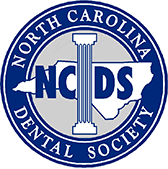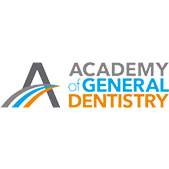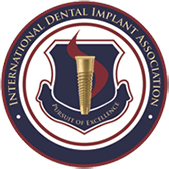Growing up, almost everyone is taught to brush their teeth twice per day, floss every day, and visit the dentist twice per year. Why is that? This daily routine helps maintain oral hygiene.
Over time, as people eat, food builds up in between the teeth. If this isn’t removed, it can quickly lead to cavities.
It is also important for people to brush properly, because this can help stop the buildup of dental plaque. While almost everyone has heard of plaque and tartar, this is often what the dentist spends time removing in the dental chair. Failure to remove this can lead to cavities as well.

What is Dental Plaque?
For those who may not know, plaque is a soft but sticky substance that can form a film or a cake on the surface of a tooth. This contains countless bacteria that grow, replicate and chew through oral surfaces such as teeth and gums.
Proper brushing and flossing can help keep the plaque at bay, but once it sticks, it requires the attention of a dentist to remove. You might need to schedule a dental cleaningappointment with your dentist in Charlotte, NC as soon as possible.
Bacteria survives on the surfaces of the teeth and gums thanks to the food that we eat. Most food contains sugar, which bacteria loves as much as we do. When they digest these sugars, they produce acid as a waste product.
This acid damages the tooth enamel, and if the bacteria do this for an extended period of time, a cavity forms.
See related: Keys to a Healthy Mouth & Healthy You
Is There a Difference Between Plaque and Tartar?
Tartar is essentially a mouth plaque that hasn’t been removed. It is important to brush and floss daily because, over time, this plaque can harden into tartar.
Tartar often collects near the gum line and the bacteria will only continue to grow and replicate. Eventually, this tartar, and the bacteria living in it, starts to cause real damage to the teeth and the gum line. This is what people call gingivitis.
The gingivitis signs and symptoms include:
- Red gums
- Severe pain
- Swollen gum tissue
- Bleeding while brushing teeth
While gingivitis can be reversed with oral hygiene and the attention of oral health professionals, it is an early stage of periodontal disease.
If this isn’t treated, it can lead to periodontitis, a severe form of gum disease which results from a larger bacterial infection. It can even lead to a breakdown of bone tissue, a receding gum line and damage to natural teeth.
In severe cases, people can actually lose their teeth. Therefore, it is vital to prevent plaque and tartar from taking root.
How Can I See Plaque and Tartar?
One of the challenges is that people have trouble seeing plaque and tartar forming in their mouth. For help with this, many stores sell plaque disclosing tablets that stain plaque red or green.
Use a cotton swab to smear the coloring on your teeth and then rinse. The stains that stay in place indicate the presence of plaque.
Brush your teeth over these areas to try and remove the plaque that lights up. This can help keep your teeth healthy and reduce your chances of developing cavities or gingivitis.
Brush and Floss Properly
The most important thing to do to keep plaque and tartar at bay isto brush and floss properly. Make sure to brush every day.
Remember to Brush Your Teeth Correctly By:
- Slide the floss down both surfaces in the crevices between teeth
- Rinse the floss and use a clean portion for each tooth
- Use the right type of floss for different space sizes between teeth
- Take extra care if braces or other oral appliances are in place
It is important to use proper brushing techniques as well. Take care to cover all surfaces, including the backs of the teeth, and do not forget the gum line.
How to Brush Your Teeth Correctly:
- When brushing, try to use circular motions or short back and forth motions.
- Angle the brush up near the gum line to remove bacteria that might be caked along the edges.
- Remember to rinse while brushing as well. This will help remove the plaque that has been scrubbed from the teeth.
- Lastly, try to use a fluoride toothpaste. This fluoride gets incorporated into the enamel and is resistant against the acid that gets released by the bacteria.
Do not forget the tongue. Food residues feed bacteria and help them produce acid for tooth decay. It is also helpful for keeping your breath smelling fresh
See related: Is Fluoride Safe?
Ultimately, dental plaque is held off with the attention of an oral health professional.
At Modern Family Dental Care in Charlotte, we have invested in the latest equipment and combined this with our expertise to keep our clients happy and healthy.
We do everything in our power to keep your teeth and gums safe from plaque and tartar. Please,contact us to schedule a dental cleaning appointment today!





